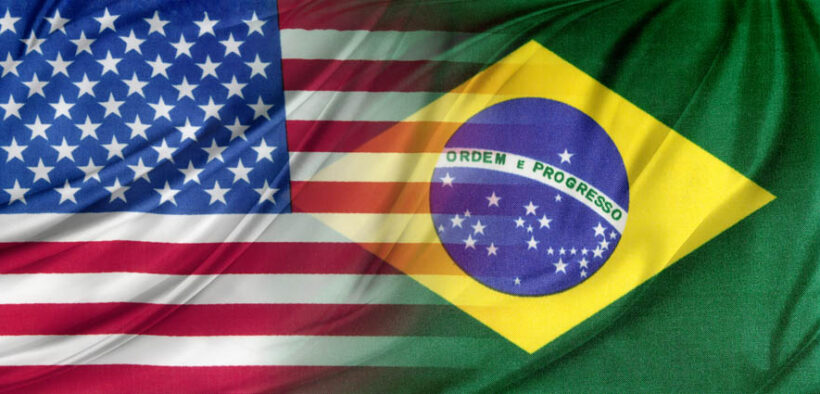Puerto Rico must monitor US-Brazil rift and brace for trade ripple effects

After nearly 30 years of working with Brazil’s business environment, I have come to deeply appreciate the country’s economic potential, entrepreneurial spirit, and strategic role in the global market. From São Paulo’s financial hub to the agricultural corridors of the interior, Brazil has always been a place of complexity and opportunity. It is my second home.
That’s why I’m deeply concerned by the current trajectory of the U.S.-Brazil relationship. What started as a political dispute over the prosecution of former President Jair Bolsonaro has escalated into a broad diplomatic and economic standoff with tariffs, visa restrictions and global alliances now part of the equation.
As someone also invested in the development of Puerto Rico’s business landscape, I believe we must pay close attention. The implications of this feud could spill beyond Brasília and Washington and touch the heart of Caribbean commerce and investment.
At the center of this standoff is the threat of a 50% U.S. tariff on Brazilian exports, set to take effect on Aug. 1. This action, driven by President Trump’s political alignment with Bolsonaro, is now coupled with a Section 301 investigation into Brazil’s digital trade practices, including its popular Pix payment system, and a controversial decision by the U.S. State Department to revoke visas for several Brazilian Supreme Court justices and their families.
Beyond the headlines lies a deeper geopolitical shift. Brazil currently leads the expanded BRICS bloc, which now includes 10 countries and is actively pursuing alternatives to the U.S. dollar. This includes launching BRICS Pay and expanding digital financial tools to bypass Western financial systems.
For Puerto Rico, a U.S. territory that serves as a key bridge between North and Latin America, this shift poses both risks and opportunities. Here’s how:
1. Logistics and trade vulnerabilities:
Puerto Rico relies heavily on maritime imports of raw materials and goods. Many of the commodities that may be hit by U.S. tariffs on Brazil — such as aluminum, ethanol, coffee, orange juice, soy-based inputs and steel — are directly or indirectly tied to our supply chains. Local manufacturers, especially those in the food processing and pharmaceutical industries, could see cost increases and delays if U.S. ports reroute or tighten their sourcing away from Brazil.
2. Inflationary pressures on consumer goods:
Puerto Rican consumers already face a high cost of living. If Brazilian goods become more expensive due to tariffs, and if those increases ripple through to food, beverage, and household sectors, the cost burden could grow. Since Puerto Rico imports over 85% of what it consumes, even small changes in trade dynamics can create tangible effects at the checkout counter.
3. Investment climate and perception:
Investors watching Latin America are also watching Puerto Rico. If the region is perceived as politically unstable or subject to shifting trade policies, Puerto Rico could become collateral damage in risk assessments. At a time when we’re actively trying to attract private equity, tech firms and infrastructure funding, Puerto Rico must work harder to differentiate itself as a stable and strategically neutral investment hub.
4. Digital payments and fintech implications:
The Section 301 investigation into Pix may seem distant, but it holds relevance for Puerto Rico’s emerging fintech ecosystem. Many local startups and banks are trying to connect with Latin American markets. If digital trade rules become more fragmented or politically driven, our innovators may face more barriers or regulatory uncertainty when operating across borders.
5. Export realignment opportunities:
If U.S. buyers reduce reliance on Brazilian exports, there may be new openings for Puerto Rican producers. Specialty agriculture, spirits, and niche manufacturing sectors could step in to meet gaps in the supply chain. However, capitalizing on this would require proactive engagement with trade officials and retooling supply chains quickly.
6. Political messaging and soft power:
The visa restrictions imposed on Brazilian judges have sent shockwaves through diplomatic circles. Regardless of one’s stance on the Bolsonaro investigation, the precedent of penalizing a nation’s judiciary sets off alarm bells. For Puerto Rico, which often advocates for greater international engagement and rule of law, this moment should reinforce our commitment to multilateral dialogue and institutional independence.
This crisis between the U.S. and Brazil is more than a bilateral squabble — it reflects the evolving nature of global trade, diplomacy and digital sovereignty. For Puerto Rico, as a U.S. territory, the best path forward is to monitor developments closely, prepare for supply chain shifts and position itself as a stable, strategic and innovative part of the Americas. We need to be vigilant and identify actions that can turn uncertainty into opportunity. Let’s stay informed and engaged.

Author Raúl Burgos is president and managing partner of Global 1080 Business Solutions, a consulting firm with more than 15 years of experience supporting business leaders in the U.S., Puerto Rico and Latin America. With more than 30 years of business experience, he is also the founder of the Puerto Rico Business Group on LinkedIn, a professional community of more than 30,000 members focused on economic development and entrepreneurship in Puerto Rico.




